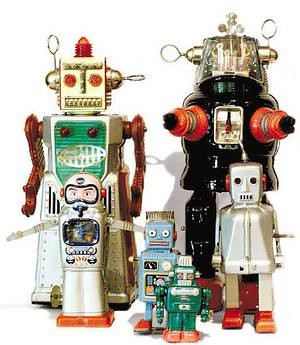
By Philip Reynolds (@boylanblazes)
“The robot will see you now¢‚Ǩ¬¶
Even in our advanced technology era, it seems farfetched to think that medical encounters will be led by robots, but that reality may be here sooner than you think. Robotics are being used in a variety of clinical and surgical settings, increasing surgical accuracy, decreasing operating times and often creating better health care outcomes than standard current approaches.
New technologies may soon make robots part of our everyday lives. However, in a health care setting, they likely wont work alone; rather than replace humans in providing care, robots are expected to augment traditional treatment, resulting in humans and robots working side by side.
Robotic technology will have a tremendous social and culture impact on the future of health care and theres a strong argument to be made that its needed.
With aging Baby Boomers, the need for care is greater than ever as incidence of heart disease, diabetes, and cancer continues to rise. At the same time, the number of primary care health professionals is on the decline, creating a gap that will continue widening as the population ages. How can medical facilities fill the gap without raising costs? Some think the answer may lie in robotics.
If this is going to work, patients will need to learn to trust these new “medical professionals and have some guidance in how to best interact with them. Twenty years ago this all would have seemed incredibly foreign, but in todays world forming relationships with technology is becoming the norm. We have virtual pets, navigation systems that speak directions or offer restaurant recommendations, and I know Im not the only person who brings my iPhone to bed.
On the other hand, while Im okay with people having pet rocks and maybe even talking to them once in a while, Im not sure Id trust one to help me decide whether to get my prostate operated on.
On the third hand, these days Im not sure how much I trust the advice of some doctors either.
Just like the doctor-patient relationship is central to quality care, people will need to develop a similar level of comfort with robots if they are going to be effective in improving health care outcomes. Dr. Joe Kvedar stresses the need to think about our human-robot interactions and help patients develop trusting relationships with technology. In some cases, patients may realize even better relationships with robotic advisors because they can share details of their illness without the feeling of stigma or embarrassment, or feeling that they are being rushed by a doctor with a waiting room full of patients. At the same time, an overworked, rushed, and emotionally drained human is not much of a standard. Couldnt we aim a little higher?
Using robots instead of people to deliver care is one way, and maybe its an inevitable one, to find cost savings in the healthcare system, but it will certainly be helpful to look at others.
Fear of new technologies is usually a precursor to engagement; as people become comfortable interacting with robots, they will enable health care to scale and meet the needs of an aging population. It will be interesting to see if its possible for patients to feel cared for by their physician while interacting with software or robots.